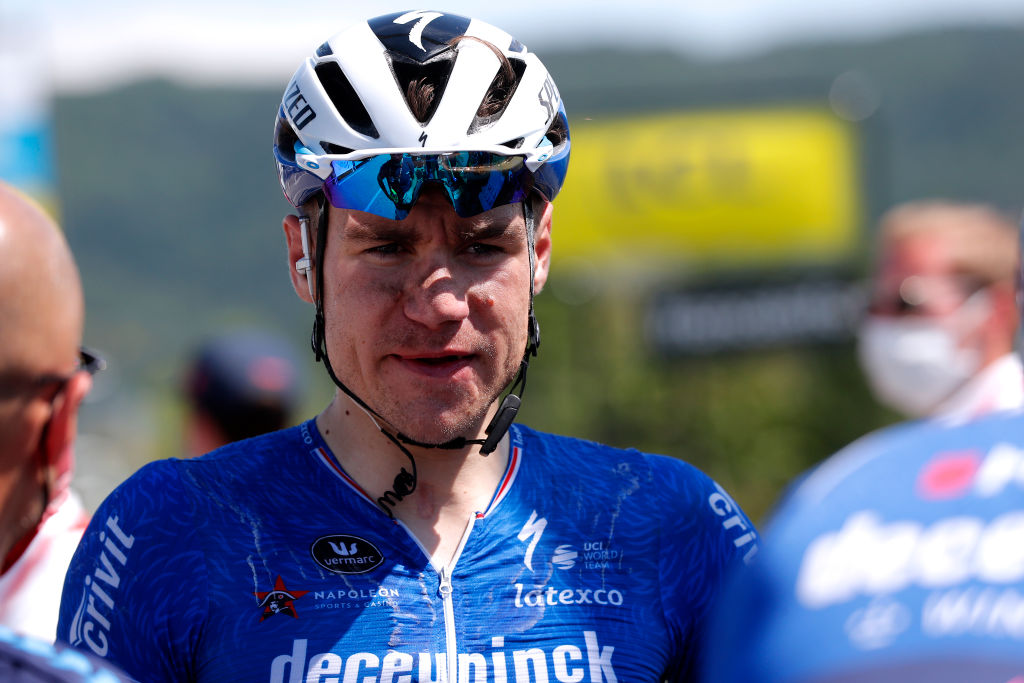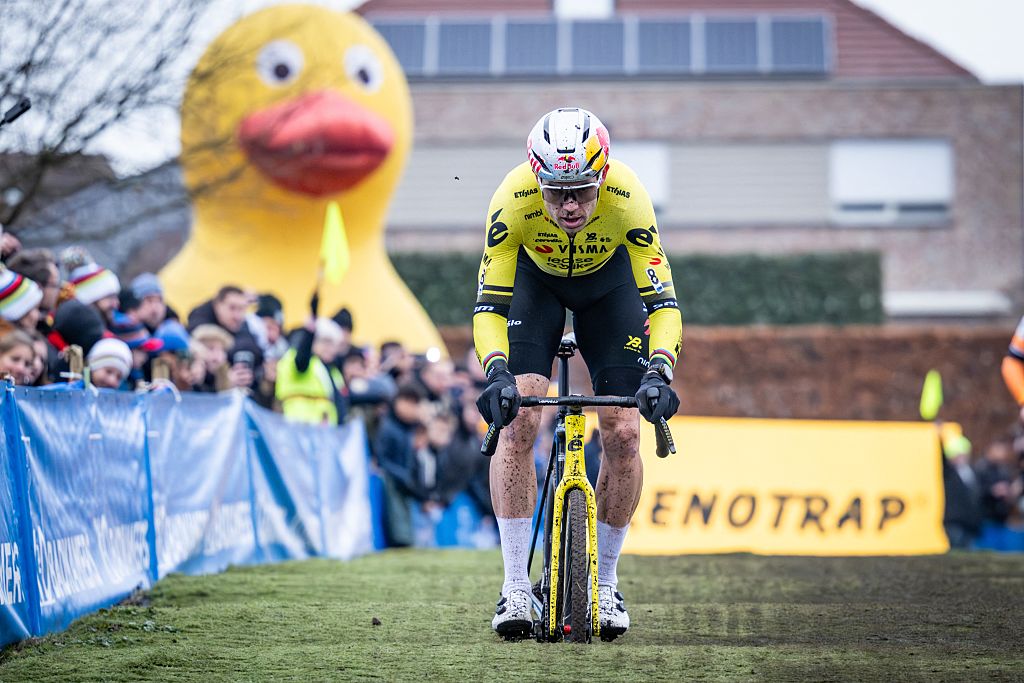Fabio Jakobsen: I am again among the top ten sprinters in the world
A year on from Tour de Pologne crash, Dutchman returns to Grand Tours at Vuelta a España

A year ago, it was unclear if Fabio Jakobsen would ever ride a bike again after his horrific crash in the dangerous, downhill finishing straight in Katowice at the Tour de Pologne.
Given the gravity of his injuries, returning to racing at the Tour of Turkey in April already had the feel of a victory, but Jakobsen reacquainted himself with the real thing at the Tour de Wallonie last month by winning a brace of bunch sprints.
Now at the Vuelta a España, Jakobsen will hope to pick up his career where he left off twelve months ago, among the best sprinters in the professional peloton. His previous appearance at the Vuelta in 2019 was his lone Grand Tour outing to date, and he underlined his burgeoning talent on that occasion by beating Sam Bennett to the line in both El Puig and Madrid.
“I’m very satisfied. A year ago I was lying on a stretcher in the plane from Poland to the Netherlands. Who would have thought then that I would be riding the Vuelta now?” Jakobsen told Het Nieuwsblad on the eve of this Vuelta, even if his ambitions at this race extend far beyond simply turning up and pinning on a number.
Jakobsen may still be a little short of his previous maximum power output as he continues to re-build his strength of old, but he no longer views himself as a rehabilitating rider. After struggling to handle race distances in the opening months of his return, he found himself reaching the finale with rather more venom in his legs in recent weeks. He told Het Nieuwsblad that struggling through June’s Critérium du Dauphiné had been a turning point.
“In the beginning I noticed that I still fell short in the final of a stage, because my condition was not yet good enough. But in the last few weeks I'm more at ease in the finale and I can start the sprint with relatively fresh legs. Actually, that is much more important than the wattages,” said Jakobsen. “I think I can say that I am again one of the top ten sprinters in the world.”
Jakobsen will have Florian Sénéchal, Josef Cerny and Bert Van Lerberghe among his supporting cast in Spain, where the first week is unusually flush with sprint opportunities. There are at least four stages where a bunch finish is a distinct probability, beginning in Burgos on Sunday afternoon. Fast men like Jakobsen, Arnaud Démare (Groupama-FDJ), Michael Matthews (BikeExchange) and Jasper Philipsen (Alpecin-Fenix) should be to the fore on the long finishing straight on Calle Vitoria.
The latest race content, interviews, features, reviews and expert buying guides, direct to your inbox!
The scars left by a crash as awful as Jakobsen’s are often psychological as well as physical, but the Dutchman insists that the incident has not changed his approach to sprinting unduly. He has, after all, already won again and already raced against the man who was suspended for causing the crash, Dylan Groenewegen (Jumbo-Visma).
“I am not more scared than I used to be. Before I was also very careful – although some people won’t agree, because sprinters are supposedly always reckless,” Jakobsen said.
“If I think I can pass another rider on a bend, then I try. If I think the gap is too small, I don't do it and I squeeze the brakes. It sounds crazy in my case, but there is no such thing as taking risks in a sprint. So I don't brake any more than I did before the fall.”

Barry Ryan was Head of Features at Cyclingnews. He has covered professional cycling since 2010, reporting from the Tour de France, Giro d’Italia and events from Argentina to Japan. His writing has appeared in The Independent, Procycling and Cycling Plus. He is the author of The Ascent: Sean Kelly, Stephen Roche and the Rise of Irish Cycling’s Golden Generation, published by Gill Books.
